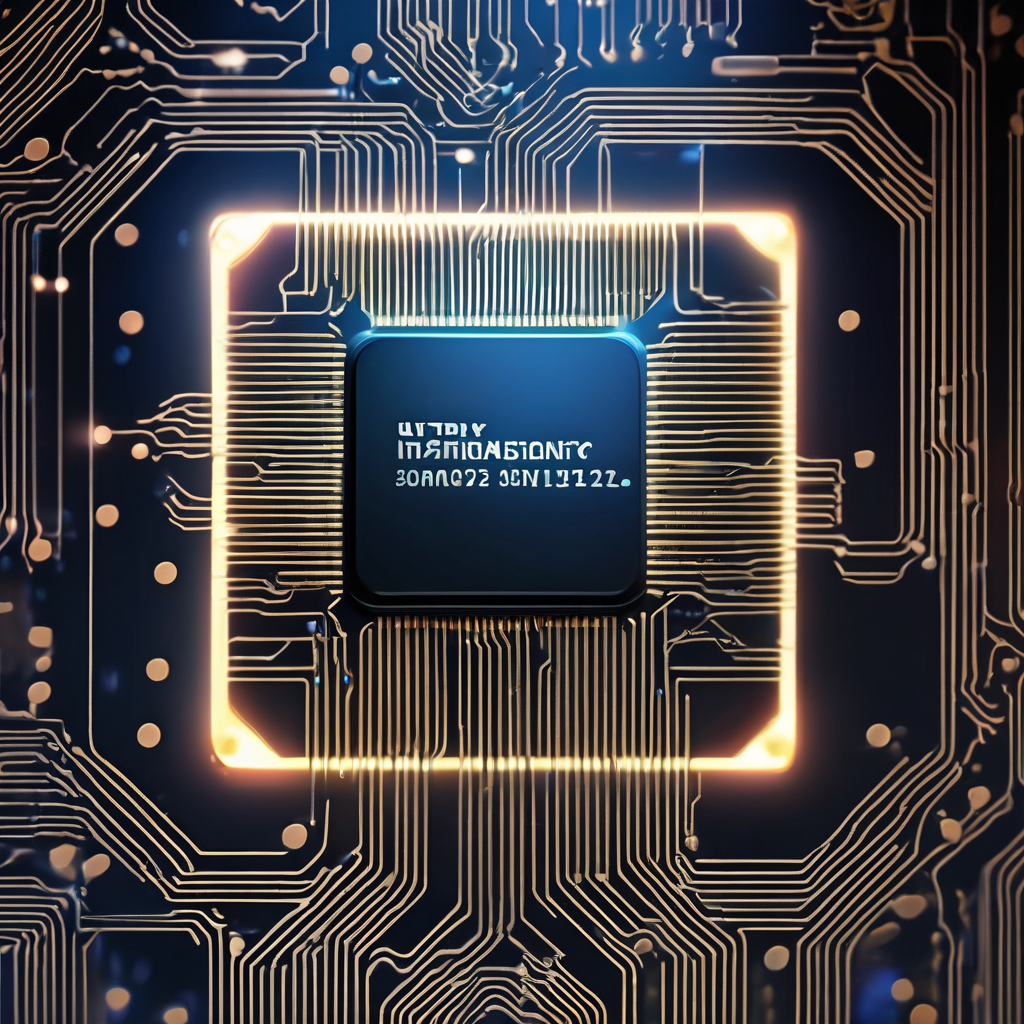
Nvidia's recent earnings report has drawn significant attention from investors and tech enthusiasts, marking a key milestone in the AI revolution. The company announced a remarkable surge in sales of its computing chips, essential for powering AI technologies. This growth exceeded high analyst expectations and boosted confidence amid concerns over Big Tech's growth sustainability. For months, Nvidia has dominated the semiconductor industry due to its advanced graphics processing units (GPUs), which have evolved beyond gaming to become vital tools for AI research and development. As AI applications—from natural language processing to autonomous vehicles—have expanded, demand for Nvidia’s specialized chips has soared. Announced late Wednesday, the company's financial results showed a strong revenue increase fueled by AI-focused chip sales. Analysts had set ambitious revenue targets based on Nvidia's past performance and the rising AI investment trend, but the company surpassed these benchmarks significantly, easing fears of a growth slowdown amid market volatility. This strong performance reassures investors wary of a potential tech sector downturn, dispelling speculation that Big Tech’s pandemic-fueled growth and AI hype might collapse. Instead, Nvidia’s results indicate the AI chip market is entering a mature expansion phase with ample room for further growth. Nvidia plays a critical role in the AI ecosystem. Although many tech giants invest heavily in AI R&D, the fundamental hardware enabling these advances relies largely on Nvidia’s technology. Its GPUs deliver the parallel processing power necessary for training complex AI models, making them preferred across cloud providers, enterprises, and research institutions. The soaring demand for Nvidia’s products reflects wider AI trends, as industries adopt AI to boost efficiency, automate, and innovate.
This digital transformation drives AI infrastructure investments, with Nvidia’s chips central to this growth. Nvidia’s strategic moves—such as partnerships and market expansion—have sustained its leadership. Collaborating with major cloud platforms and AI software developers ensures its technology stays optimized for new AI workloads. Its agility and innovation keep Nvidia ahead of competitors vying for the AI hardware market. Despite worries about a tech slowdown, Nvidia’s robust financial results highlight AI-related business resilience and growing significance. While some tech sectors may face cyclical dips, AI’s transformative power continues to attract long-term investment and development. The earnings report also outlined future plans and outlook. Nvidia’s leadership expressed optimism about ongoing demand for high-performance computing, driven by generative AI, machine learning, and data-heavy applications. Continued investment in R&D aims to preserve Nvidia’s competitive edge in a fast-evolving market. In summary, Nvidia’s record-breaking AI chip sales reflect accelerating AI adoption across industries and reaffirm its key role in this transformation. By surpassing analyst expectations, Nvidia has strengthened its market position and alleviated investor concerns about Big Tech’s trajectory, signaling a robust and promising growth outlook for AI’s future.
Nvidia’s Record-Breaking AI Chip Sales Boost Investor Confidence and Signal Strong Growth


The Saudi government is significantly boosting Hollywood-focused AI by leading a $900 million funding round for San Francisco-based Luma AI, a company developing models for entertainment applications.

Over the past year, AI-generated video diffusion models have made remarkable advances in visual realism, demonstrated by models like OpenAI’s Sora 2, Google’s Veo 3, and Runway Gen-4.

New York – The creator economy’s advertising sector is rapidly expanding and evolving, with ad spending soaring from $13.9 billion in 2021 to $29.5 billion in 2024, and forecasts projecting growth to $37 billion soon.

In today’s fast-changing digital environment, the rise of artificial intelligence has profoundly reshaped how brands manage their visibility and online presence.

At the recent Ignite 2025 conference, Microsoft announced the integration of OpenAI’s advanced video generation model, Sora 2, into Microsoft 365 Copilot, marking a major enhancement to its productivity tools.

At the Nvidia GPU Technology Conference (GTC) 2025, CEO Jensen Huang delivered a keynote outlining a transformative future for artificial intelligence (AI), describing it as reaching a critical "inflection point." Addressing thousands of developers and industry leaders at the event—often dubbed the "Super Bowl of AI"—Nvidia unveiled significant advancements in technology and its vision for AI’s next decade.

Imagine the scenario: a week before your mother’s birthday, you want to find her a chocolate gift.
Launch your AI-powered team to automate Marketing, Sales & Growth

and get clients on autopilot — from social media and search engines. No ads needed
Begin getting your first leads today